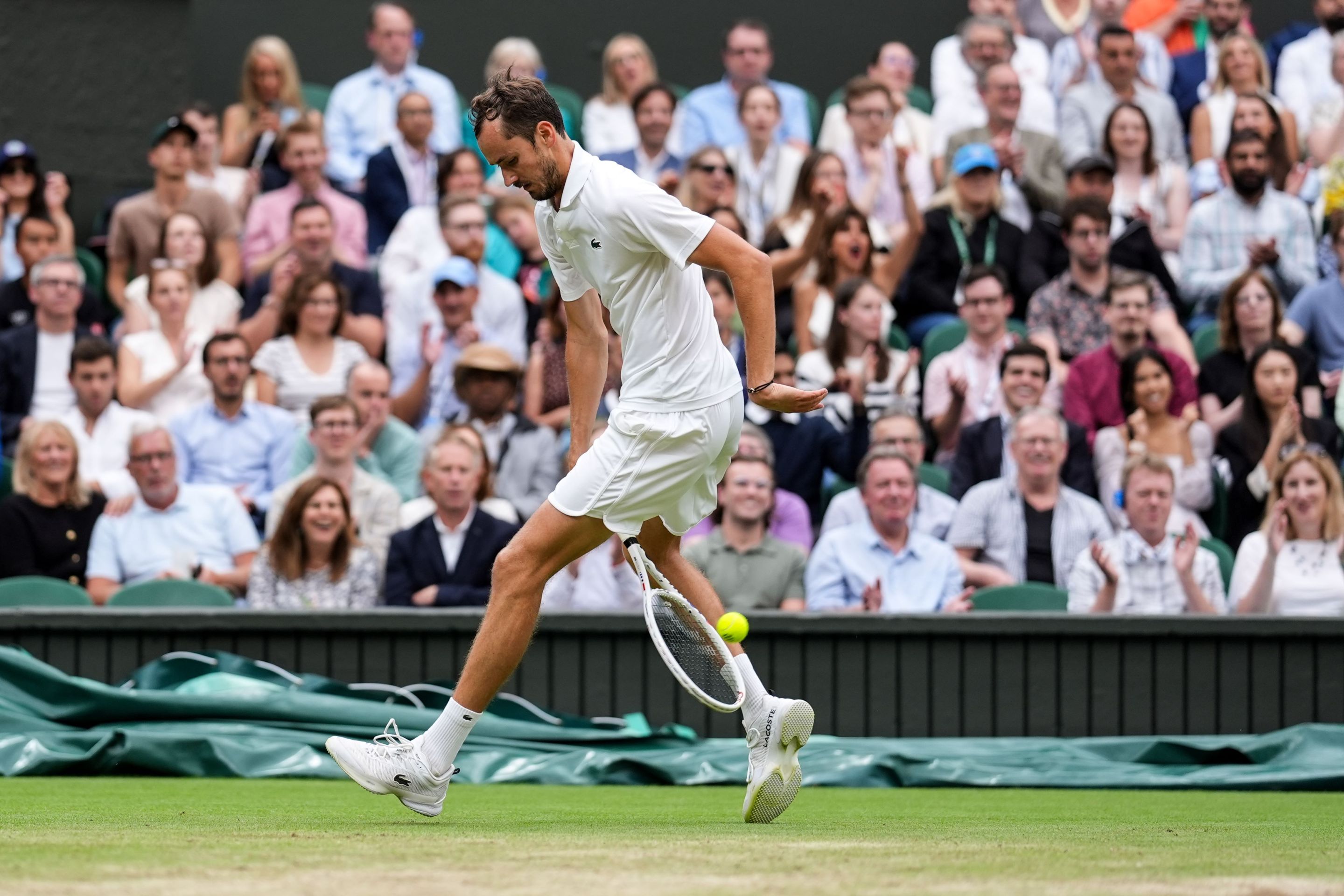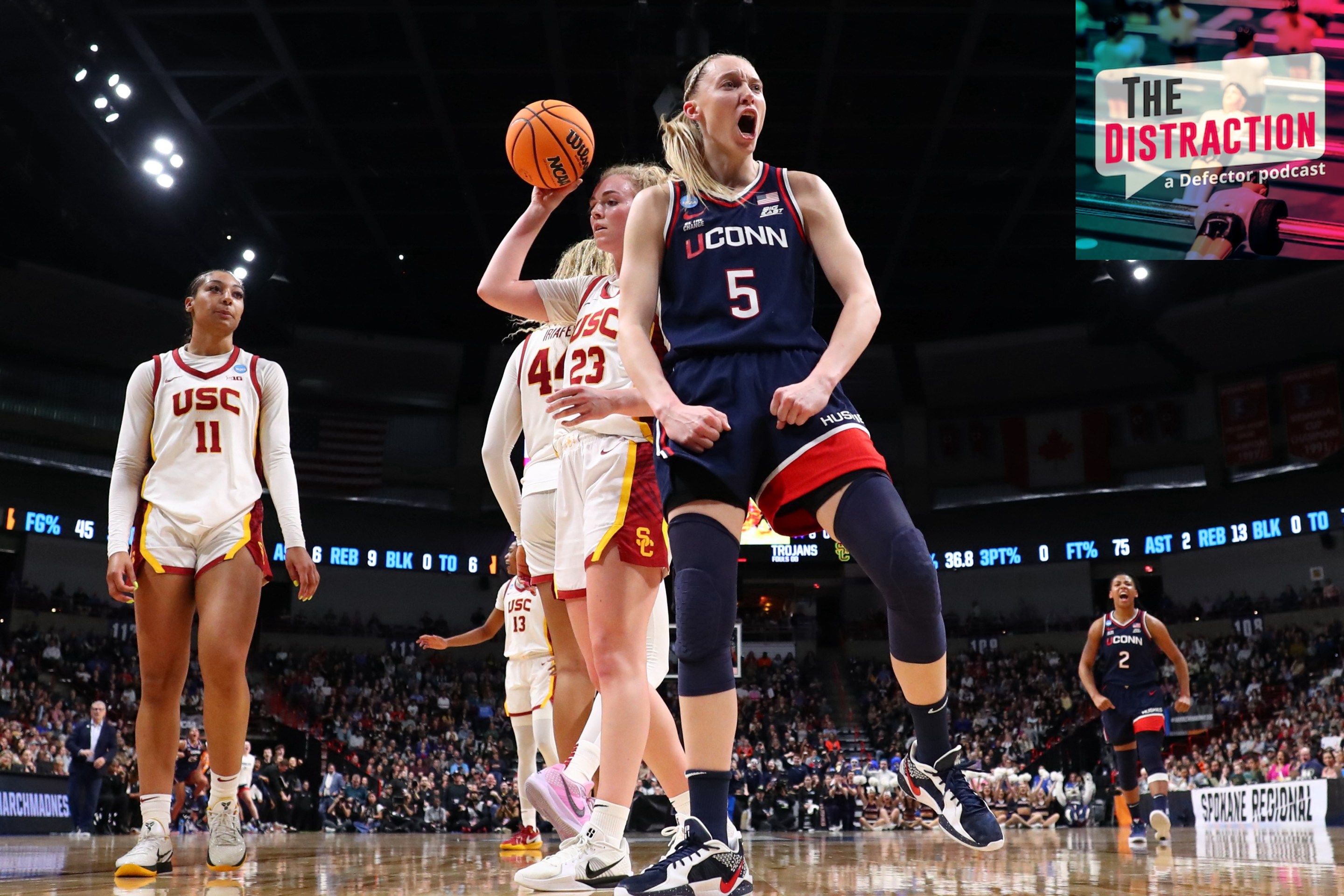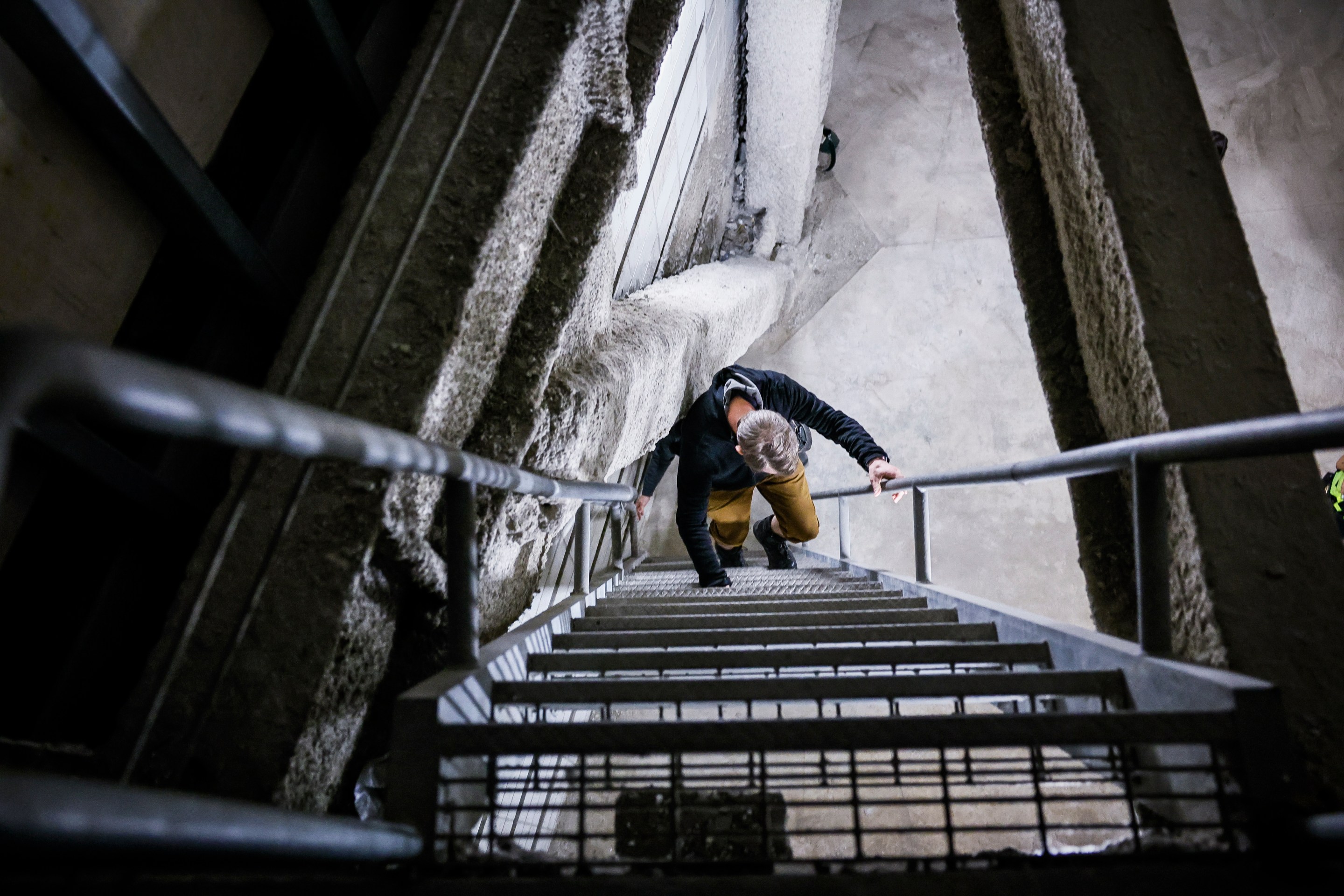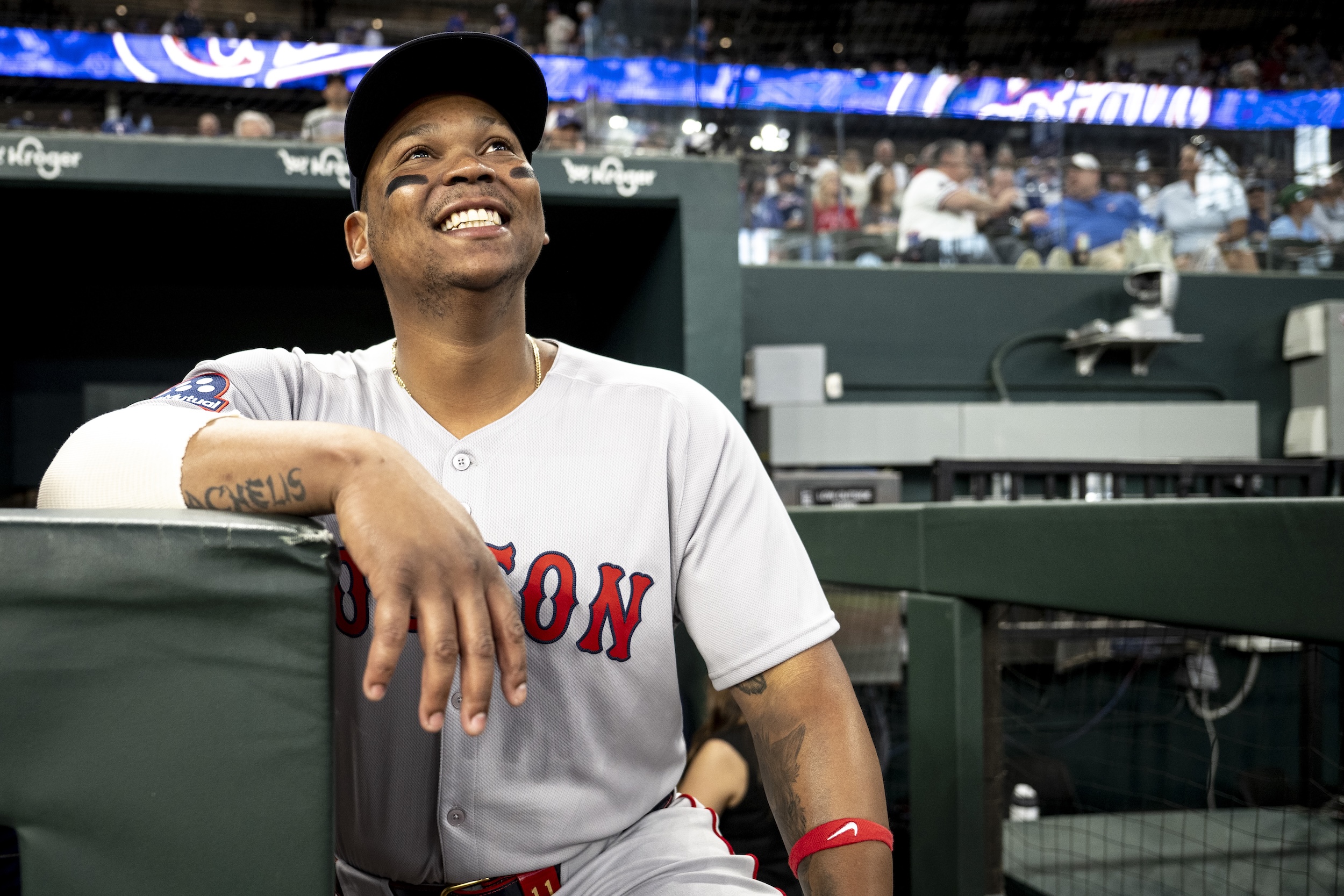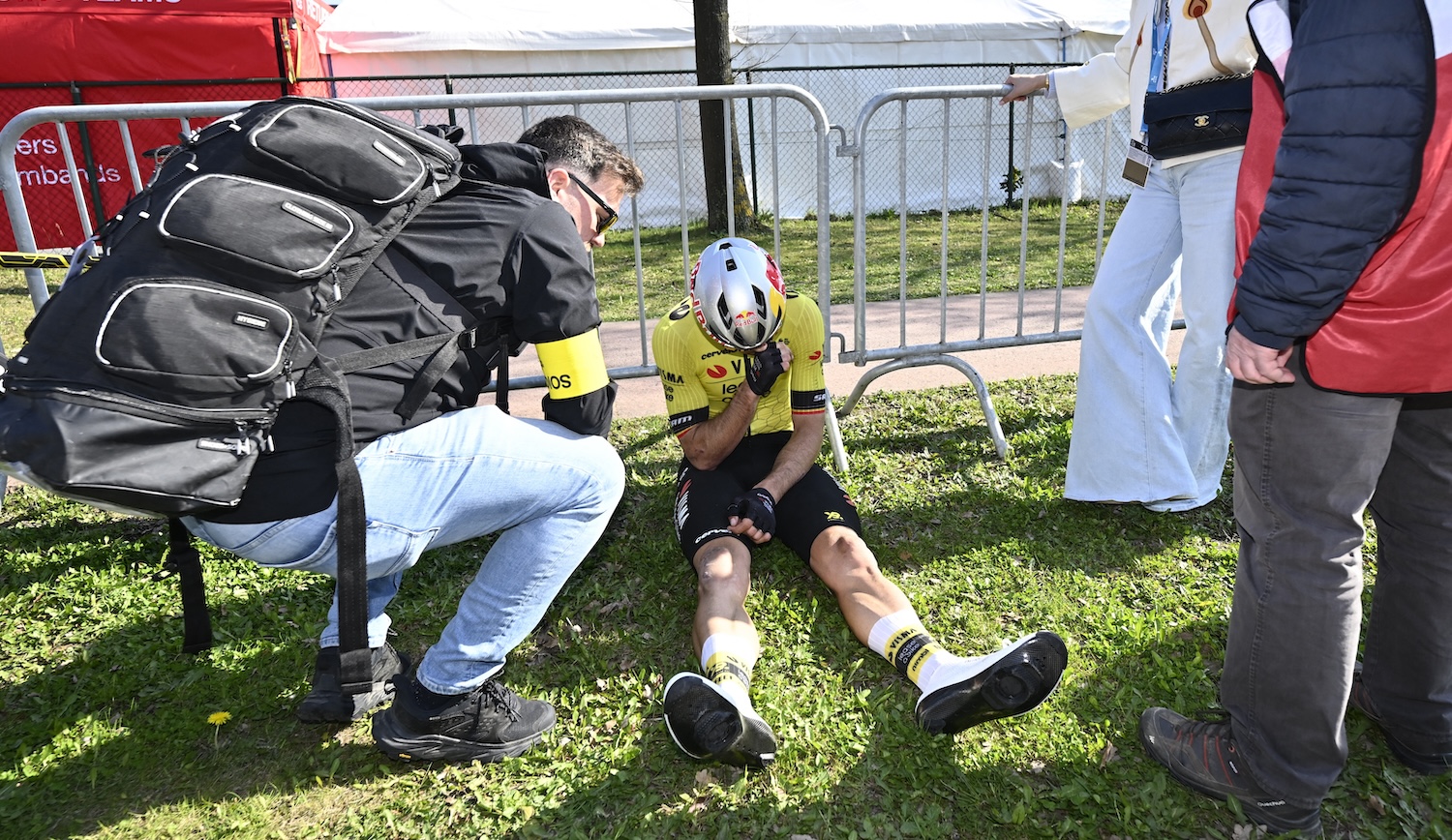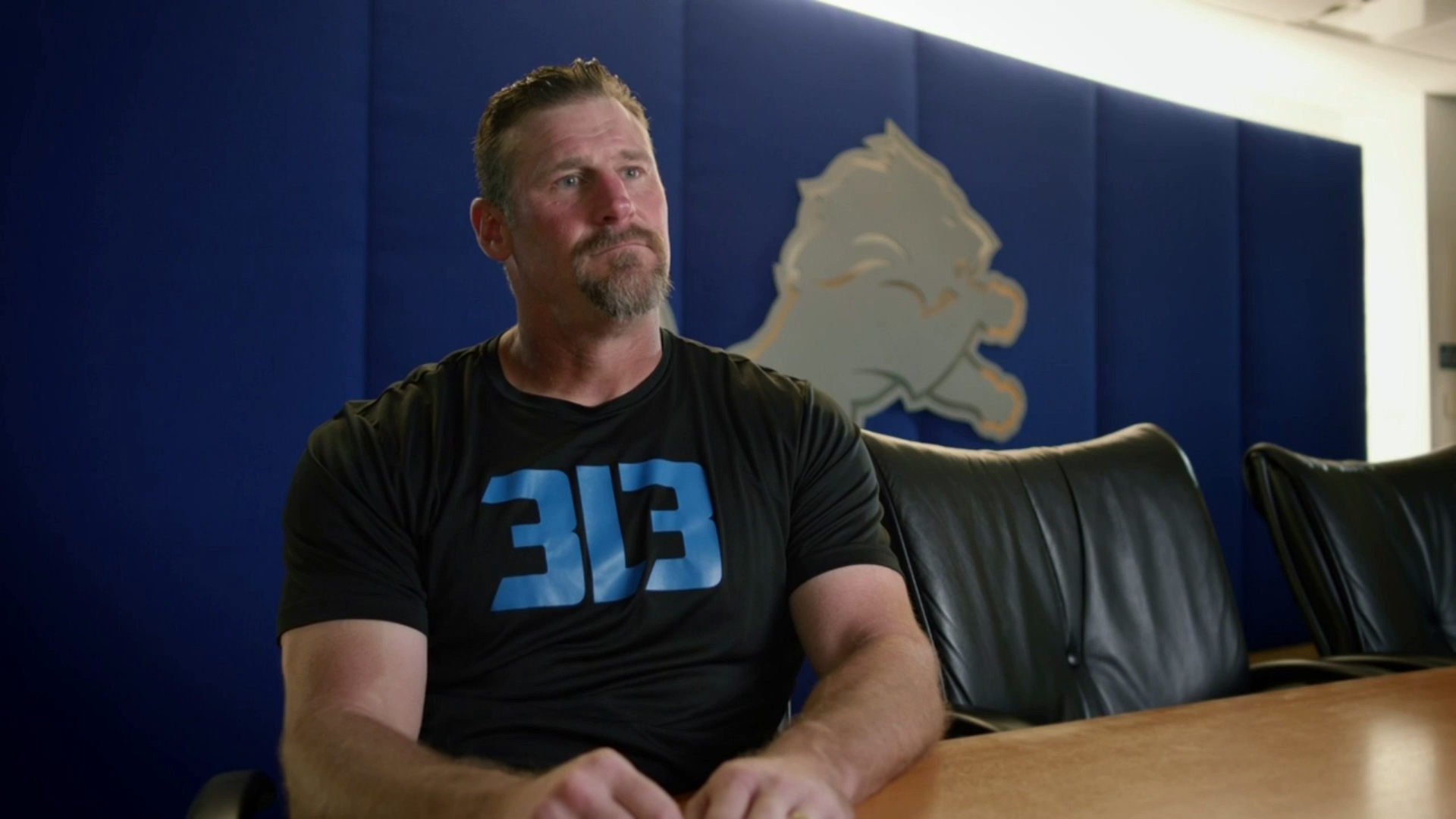The hardest thing in tennis is beating somebody who has your number, and since late 2023, Daniil Medvedev’s digits have been seared into Jannik Sinner's hippocampus. The 28-year-old Medvedev, older by more than half a decade, feasted on Sinner when the latter was new to the tour. Sinner had power in spades but lacked consistent accuracy and endurance, so Medvedev’s smothering defense was the perfect antidote. But towards the end of last season, Sinner spewed out his flaws into a trash bin, and the heat from his puke forged an even stronger tennis machine. After losing his first six matches to Medvedev, Sinner reeled off five straight wins over his former nemesis, winning with increasing ease. Such wins included a soul-sucking comeback from two sets down in the Australian Open final in January and a 6-1, 6-2 demolition in Miami so thorough it left me wondering how Medvedev would ever beat Sinner again.
On Tuesday in the Wimbledon quarterfinals, Medvedev promptly ended my musings with a superb 6-7 (7), 6-4, 7-6 (4), 2-6, 6-3 (aren’t tennis scores the best?) upset over Sinner, the world No. 1. With Sinner one match away from earning a date with Carlos Alcaraz, to whom he lost in five sets at Roland-Garros, the tennis world had already started salivating. Medvedev, forever a joyful spoiler, tore up the script, fittingly punctuating the win with an unorthodox backhand winner down the line on match point that landed in the corner and sailed away from Sinner.
If you’re sad at the loss of Alcaraz-Sinner, I understand. Their Roland-Garros semifinal was gripping but not definitive, and you want that sequel now. Get over yourself, because Medvedev’s win is all kinds of amazing. How often does the parent (or older sibling) beat the kid again in any given sport after the youngster breaks their 0-and-life losing streak? The elder sees the future after that last shot sails over their head, and it is winless, filled with aching limbs and the condescending laughs of youth. Medvedev, the wily cat, changed his fate by matching and exceeding Sinner’s artillery from the baseline until the best player in the world cracked. The olds are back!
It should be said that Sinner was not at his best, first suffering from an apparent lack of energy in the second set and taking a medical evaluation off-court in the third set after looking sick in his chair. The puke from which Neo-Sinner was born threatened to return. But Sinner impressed the hell out of me with how he managed his maladies, mixing in drop shots to slow Medvedev’s momentum to a crawl even as he languished in discomfort.
What makes the win most impressive is that Medvedev had to suffer. Between players as balanced and strong as Sinner and Medvedev, rallies are often pure exchanges of pace; one of the players’ lungs will fail before a backhand does. If you don’t want to risk aiming for a line to end a point, you’ll subject yourself to a PACER test. In the first-set tiebreak, Medvedev engaged Sinner in a 32-shot rally, finally winning it with a forehand down the line/drop shot combo. The effort wasted him so badly that he double-faulted on the next point. A few minutes later, they played a 24-shot scorcher that Sinner killed off with a backhand winner. Again, a gassed Medvedev double-faulted, losing the set. In hindsight, Medvedev was playing the long game, sucking huge chunks of energy from Sinner’s reserves even in losing that first-set tiebreak. He quickly dragged the match to a point of such high attrition that Sinner’s fatigue compounded his sudden illness in the second set rather than the fourth or fifth.
This is the kind of match that forces some reevaluation of the top of the game. Compromised or not, Sinner has now lost two straight five-setters, the antithesis of rival Alcaraz’s near-invincibility in long matches. There’s a persuasive argument, based on the last two majors, that he loses a bit of his edge in best-of-five-set tennis and is a tougher out in best-of-three. (Plus, if Alcaraz can win Wimbledon on top of his recent Roland-Garros title, Sinner's No. 1 ranking will start to feel unimportant in comparison.) Meanwhile, Medvedev was not previously thought of as particularly elite on grass courts, but he has invited reconsideration by making the semifinals at Wimbledon in consecutive years, joining only Alcaraz and Novak Djokovic.
Can you think of a better individual win this year in the entire sport? I don't see anything topping a five-set victory against the world No. 1 in a big match that breaks a brutal losing streak. Sinner beating Djokovic at the Australian Open was historic but came against a Novak possessed by a middling tennis player for the first time in his life. Naomi Osaka upsetting then-three-time Roland-Garros champion Iga Swiatek in the second round of the tournament in late May would have been even more impressive, but Osaka’s blistering performance fell one point short and Swiatek nabbed the win. And Swiatek’s epic, match-point extravaganza with Aryna Sabalenka in Madrid may have been of higher quality, but it didn’t take place at a major. Medvedev somehow transformed from a pigeon into a blazing phoenix when it mattered most, a sight so rarely seen in consequential moments.
Now Medvedev has to burst into flames all over again. He has Alcaraz next, who thrashed him 6-3, 6-3, 6-3 at this exact stage of Wimbledon last year. Medvedev tends to struggle backing up these sensational upsets—after stunning Alcaraz at the U.S. Open to avenge the Wimbledon drubbing, he lost in straight sets to Djokovic. It’s cruel. The era of peak Djokovic, Rafael Nadal, and Roger Federer meant that any potential interloper would have to beat at least two of them to win a major. Naturally, this hardly ever happened. Even as that period comes to an end, Alcaraz and Sinner have risen to fill the gaps.
An entire generation of players (say, anyone aged 23-29) has seen their chance to win a major—thought to increase after the Big Three aged out—collectively plunge back down to nil. Sure, one or two might steal a big title here and there, but it’ll be a feel-good moment due to a fortunate draw, not a coronation. Medvedev has resisted the slide into irrelevance more than anybody else on the ATP. He has already won a major, the 2021 U.S. Open, and been ranked No. 1 for a few fleeting weeks in 2022. But he wants more, and he's been able to get it on occasion. He’s beaten Alcaraz and Sinner in his last meeting with each at a major, even if he's lost his other eight matches against the pair in the last 12 months. Medvedev is trying, damn it, and I hope those efforts keep sporadically squeezing him into the spotlight at the expense of the two golden boys.
